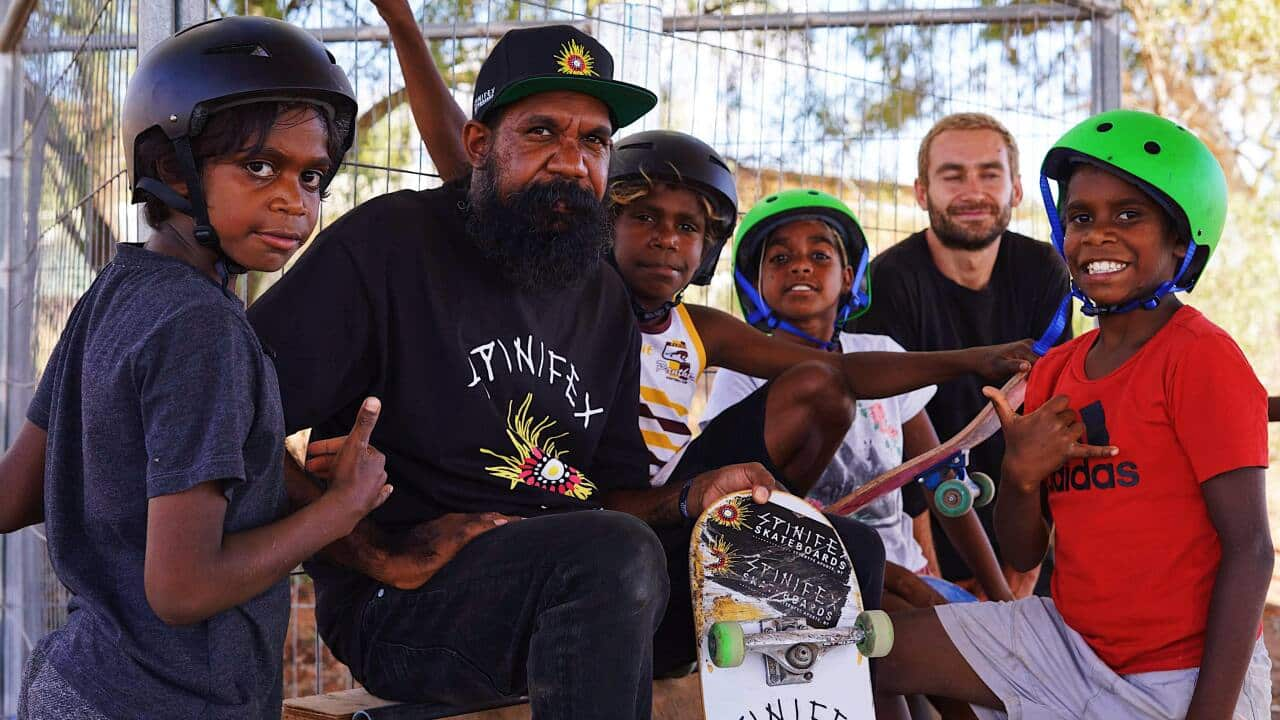The Northern Territory government has passed its contentious new youth bail laws that critics warn will see the number of Indigenous kids ending up behind bars skyrocket.
Under the changes, passed in parliament on Tuesday night, children accused of reoffending or committing serious breaches while on bail can be automatically placed on remand.
However, a late amendment following widespread criticism from across the country means courts have the power to grant fresh bail in “exceptional circumstances”.
It followed calls for the reforms to be scrapped and protests outside parliament, with some groups and activists branding the changes racist because they will mostly affect Indigenous children, who have been disproportionately detained in the NT.
NT Police Minister Nicole Manison said the new laws would ensure there are immediate consequences for offenders who commit crimes while on bail.
"It was 116 youths that committed 50 per cent of the offences last year - over 3,000 offences," she told reporters during a break from debate on Tuesday.
"We are going to be able to break the cycle of crime of these youths that are clearly not willing to abide by their bail conditions."
Image
Under the laws, police have been given more powers to immediately place electronic monitoring on alleged offenders and breath test children without an adult guardian present. The presumption of bail for first-time offenders has also been removed.
NT Chief Minister Michael Gunner said in March that "bail is a privilege, not a right".
"Territorians are trusting you on bail and you must do the right thing while you're on bail," he said.
Critics of the laws say they roll back critical recommendations from the Royal Commission into the Protection and Detention of Children in the Northern Territory.
The North Australian Aboriginal Justice Agency was among those to lead the criticism, saying the laws would lead to skyrocketing numbers of Aboriginal children being placed in jails and cause more harm than good.
CEO Priscilla Atkins on Wednesday the passing of the reforms would not solve community issues.
“It's not going to make [the] community safer. What we need to do is actually change the behaviour of these youths," the Eastern Arrernte woman said.
"By locking them up and making significant changes to these bail laws, we're just going to increase the numbers going to [detention].”
Amnesty International Australia said it was “breathtaking” the reforms were passed, given the NT government acknowledged it needed to better care for children following the royal commission in 2017.
“The Gunner government claims they’re making the community safer, but I can tell you now these laws will make kids much less safe from the systemic racism which means our kids are imprisoned at 25 times the rate of their non-Indigenous peers,” the group’s Indigenous rights lead Nolan Hunter said.
The Human Rights Law Centre said the government has “turned its back” on Indigenous kids in the NT and it feared the new laws could lead to the death of a child in custody.
“Responses should always be grounded in rehabilitation and support, and for Aboriginal and Torres Strait Islander children, this means strong connection with culture and family. Overwhelming evidence shows that putting children in prison does not stop offending, nor result in rehabilitation,” legal director Meena Singh said.
“Instead of locking more children up, the Gunner government should instead be working with communities to support children in all aspects of their life – education, health and wellbeing and culture. These are the things that keep communities safe.”
All 14 Australian and New Zealand Children's Commissioners and Guardians also opposed the legislation, saying it was regressive and signalled a shift away from evidence-based policy approaches.
"All the evidence tells us the best way to prevent youth offending is to divert young people away from the justice system and into alternative programs that offer the support they need," National Children's Commissioner Anne Hollonds said.
"Children who come to the attention of our justice systems are some of the most vulnerable and disadvantaged members of our communities, often with backgrounds of abuse or neglect."
NT opposition leader Lia Finocchiaro, however, said the government had abandoned its promise to crack down on youth crime by bowing to pressure and watering down the laws.
"The Gunner government should bring sensible reform, yet introduces these overly-complicated, ambiguous changes, which barely shuffles in the right direction," she said.
Despite this, the CLP supported the bill, along with the NT Police Association, which said its members had been "carrying the workload of a larger social issue for far too long."
With AAP.



